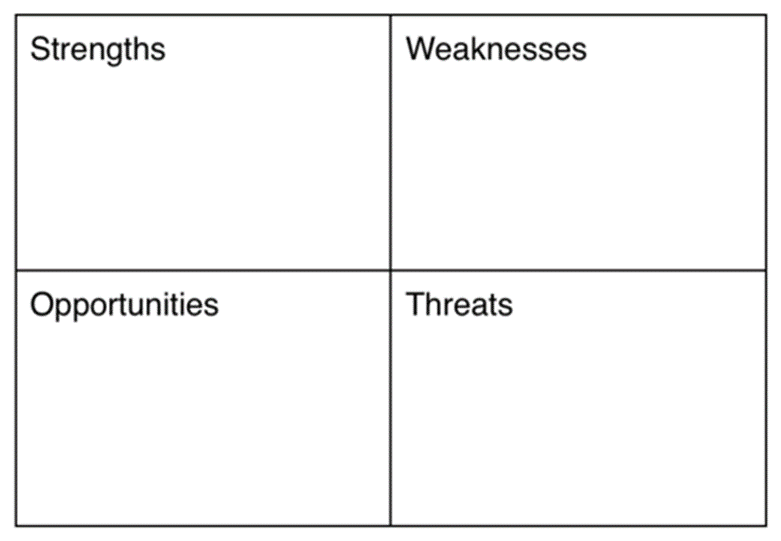A competitive analysis SWOT (Strengths, Weaknesses, Opportunities, Threats) is a strategic tool that helps businesses understand their competitive landscape and identify key focus areas to improve their overall performance. As the holistic medicine industry continues to grow and evolve, it is crucial for holistic medicine practices to regularly conduct a competitive analysis SWOT to stay ahead of your competition and attract more patients. This blog will discuss the steps you can take to create a competitive analysis SWOT for your holistic medicine practice.
Step 1: Research, Your Competitors
The first step in creating a competitive analysis SWOT is researching your competitor; this includes understanding their strengths, weaknesses, opportunities, threats, overall business model, target market, and marketing strategies. You can research other practices by looking at their websites, social media profiles, online reviews, and additional relevant information. You can also reach out to your existing patients and ask for their opinions on your competitors. You can also attend trade shows and events related to the holistic medicine industry to understand your competitors' offerings and strategies better.
Step 2: Identify Your Strengths and Weaknesses
Once you have completed your competitor research, you can identify your strengths and weaknesses. Your strengths might include a strong reputation, experienced practitioners, a wide range of modalities and services, or a commitment to sustainability. On the other hand, your weaknesses might include a limited number of practitioners, a lack of investment in marketing and advertising, or a limited number of treatment rooms.
Step 3: Identify Opportunities and Threats
Next, you can start identifying the opportunities and threats in the holistic medicine market. Possibilities might include an increasing demand for holistic treatments, a growing awareness of the benefits of holistic medicine, or the opportunity to expand into new markets. Threats might include increased competition, government regulation changes, or declining insurance billing payments.
Step 4: Develop a SWOT Matrix
Once you have identified strengths, weaknesses, opportunities, and threats, you can develop a SWOT matrix. This visual representation of your SWOT analysis helps you see the relationships between the different elements. To create a SWOT matrix, you can use a simple table with four columns: Strengths, Weaknesses, Opportunities, and Threats. You can then start to fill in each column with the information you have gathered in your research.

Step 5: Use Your SWOT Analysis to Develop a Strategic Plan
Once you have completed your SWOT matrix, you can use the information to develop a strategic plan. This plan should include specific goals and strategies to help you address your strengths, overcome weaknesses, take advantage of opportunities, and mitigate threats. For example, suppose you have identified a lack of investment in marketing and advertising as a weakness. In that case, your strategic plan might include investing in a new marketing campaign to raise awareness of your services to companies in the vicinity of your practice. If you have identified increased competition as a threat, your strategic plan might include expanding your services to differentiate yourself from your competitors.
Step 6: Monitor and Update Your SWOT Analysis
Finally, it's essential to monitor and update your SWOT analysis regularly; this will help you stay on top of market changes and ensure that your strategic plan is still relevant and practical. For example, suppose you have identified an increasing demand for acupuncture treatments as an opportunity. You may want to check regularly if this trend continues and consider investing in new treatments or services to take advantage of the opportunity.
In conclusion, a competitive analysis SWOT is an essential tool for holistic medicine practices to understand their competitive landscape and improve their overall performance. By researching your competitors, identifying your strengths and weaknesses, and identifying opportunities and threats, you can develop a strategic plan that addresses your key focus areas. Regularly monitoring and updating your SWOT analysis will also help you stay on top of changes in the market and make sure that your strategic plan remains relevant and practical. By regularly conducting a competitive analysis SWOT, you can stay ahead of the competition and attract more patients to your holistic medicine practice.
It's important to note that a competitive analysis SWOT is just one tool in a holistic approach to business strategy. It would be best to consider other strategic tools such as market research, patient surveys, and financial analysis to understand your business and develop a comprehensive strategy fully. By taking a comprehensive approach to your business strategy, you can make informed decisions, improve your overall performance, and achieve your goals for your holistic medicine practice.
How does this relate to an EHR and insurance billing company focused on acupuncture, chiropractic, and medical-massage Billing? While you are busy creating your business and marketing plans, your time does not need to be consumed by tedious technology or complicated medical coding and billing process. By letting the best firm focused on integrative healthcare Holistic Billing Services handle your online appointments, SOAP notes, or medical billing needs, your energy, creativity, and talents are freed up to focus on identifying and serving your patients. The friendly experts at Holistic Billing have over 20 years of experience and are eager to help you succeed in EHR and Medical Billing! Contact us today to get started building a solution that suits your acupuncture practice needs and goals.
